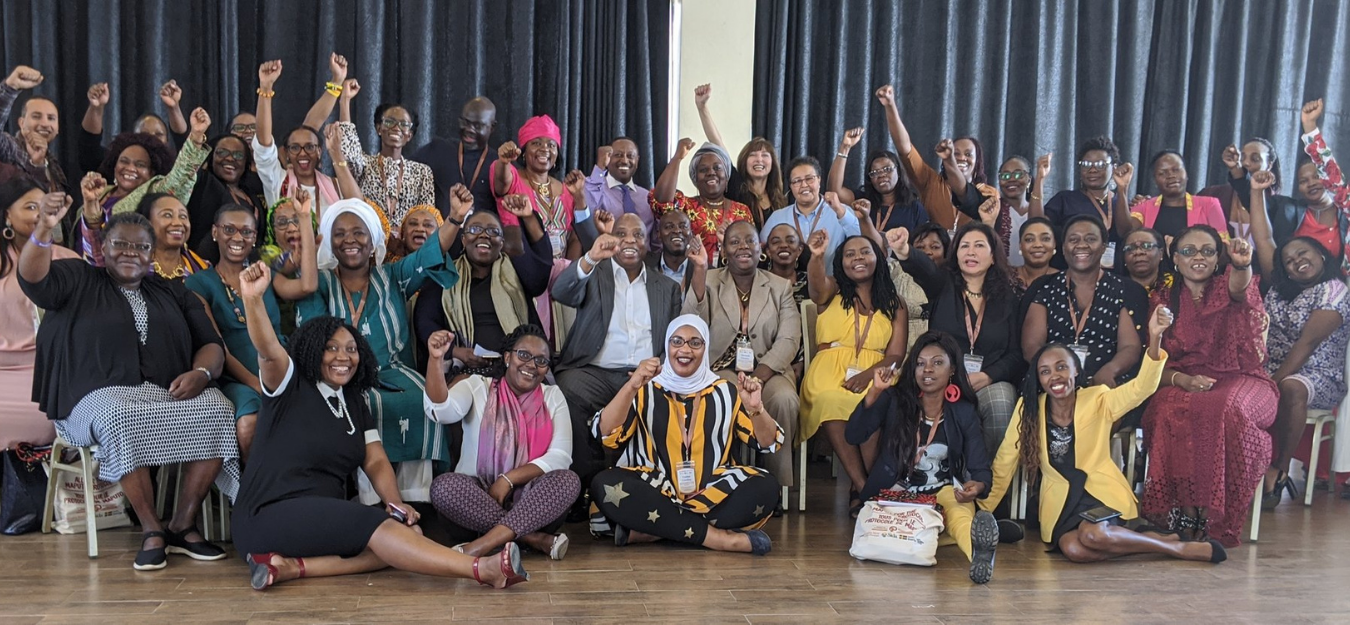Signed 20 years ago, in the Mozambique city that bears its name, the Maputo protocol was a landmark treaty in the progress towards gender equality across Africa.
It promises equality and non-discrimination to women and girls in civil, political, economic, social and cultural rights.
Since it came into force, 49 of the 55 African Union member states have signed on, and 42 have ratified it. The protocol is one of the most ratified of any instrument in the continental union.
With its goal to enhance and safeguard women’s rights throughout Africa, it is widely regarded as one of the most comprehensive, progressive and innovative documents of its type.
It is an important tool for governments to ensure that women’s rights are protected and upheld in all aspects of life: the right to education and healthcare, political participation, equal inheritance rights, freedom from violence and access to land and property. It also seeks to eliminate harmful practices such as female genital mutilation (FGM), early marriage and forced marriage, and requires governments to take measures to prevent gender-based violence. What is particularly impressive is how the protocol recognises the importance of tackling HIV/Aids and acknowledges widow’s rights and women’s and girls’ rights to access safe abortion under certain circumstances.
Burundi, Central African Republic, Chad, Eritrea, Madagascar, Niger, Somalia and Sudan are the eight countries that have signed but not ratified, and three countries (Botswana, Egypt and Morocco) have yet to sign.
In 2013, I had the opportunity to participate in the assessment of the first 10 years of the Maputo protocol, so it was an honour when Make Every Woman Count (MEWC) was asked to collaborate with the Solidarity for African Women’s Rights (SOAWR) and Equality Now Africa office on the 20th anniversary progress report. I was eager to see what gains had been made – and the challenges that still exist – since the last assessment.
More than half of African states now have laws in place to ensure that individuals are paid equally for the same work
The report: 20 Years of the Maputo Protocol, Where Are We Now?, provides detailed insights into the key findings on the progress made, as well as the problems that still need to be overcome. It shows governments across the continent have taken steps to introduce constitutional, legal, policy and institutional reforms that align with the commitments made. Significant strides have been taken in areas such as economic and social welfare rights, the right to participate in the political and decision-making process, marriage rights, reproductive health and protection against female genital mutilation (FGM).
For example, more than half of African states now have laws in place to ensure that individuals are paid equally for the same work. Many countries prohibit discrimination in employment based on gender. Many countries have adopted legislation tackling violence against women either as a standalone law, addressed it in the penal code, or enacted legal reforms prohibiting it. Several countries, including Burundi, Eswatini, Kenya, Rwanda, South Sudan, Sudan, Tanzania, Uganda and Zimbabwe, have taken steps to promote women’s representation in political life and decision-making processes by adopting constitutional quotas. Although each constitution varies in terms of the quota’s scope and the specific percentage or number of seats reserved for women, it is evident that these nations are making strides towards greater gender equality and inclusivity.
The Maputo protocol has played a vital role in creating legal tools. It explicitly prohibits practices such as child marriage and forced marriage and requires state parties to criminalise rape, sexual harassment and other gender-based violence. For example, a medical practitioner’s challenge to Kenya’s Prohibition of Female Genital Mutilation Act and anti-FGM Board was rejected by the high court in 2021. The court referenced the Maputo protocol and determined that limiting FGM was reasonable in a society that values women’s dignity and democracy. The attorney general was ordered to propose modifications to the 2011 Act to prohibit all harmful FGM practices. Progress made.
But much work must be done to ensure that the rights enshrined in the protocol are fully realised for all of Africa’s women. Areas to look at include political will, financial resources, lack of awareness among stakeholders, and limited capacity within governments.
Strong political will to implement the treaty is paramount. This means recognising the importance of gender equality and ensuring that government officials at every level are fully committed to this cause. Without such focus, progress will be slow and limited and the full potential of the protocol may never be realised.
Money is necessary to ensure that governments can adequately resource the implementation of the protocol. Without resources, providing civil society organisations with the required support, including legal information and capacity-building activities, will be challenging.
Lack of awareness among stakeholders is another barrier. More education is needed to ensure that the underlying issues affecting Africa’s women are fully understood and addressed.
Many governments have limited capacity within their administrations, and implementation requires training officials and investing in technology and systems.
Achieving the goals outlined in the Maputo protocol is crucial for all African governments to make progress towards gender equality.
This requires decisive action – legislation must be enacted to safeguard women’s rights, enforced through effective mechanisms, promoting access to education, healthcare and economic opportunities that are sensitive to gender issues, collaborating with civil society organisations, strengthening protections for victims of gender-based violence, allocating adequate funding for gender equality programmes, establishing reliable data collection, and raising awareness about gender-based violence.
Most importantly – to ensure the successful implementation of the Maputo protocol, it is vital to strengthen monitoring and accountability mechanisms to hold all state parties accountable. That way we will achieve the full potential of this unique treaty for all Africa’s women.
Source: The Guardian






